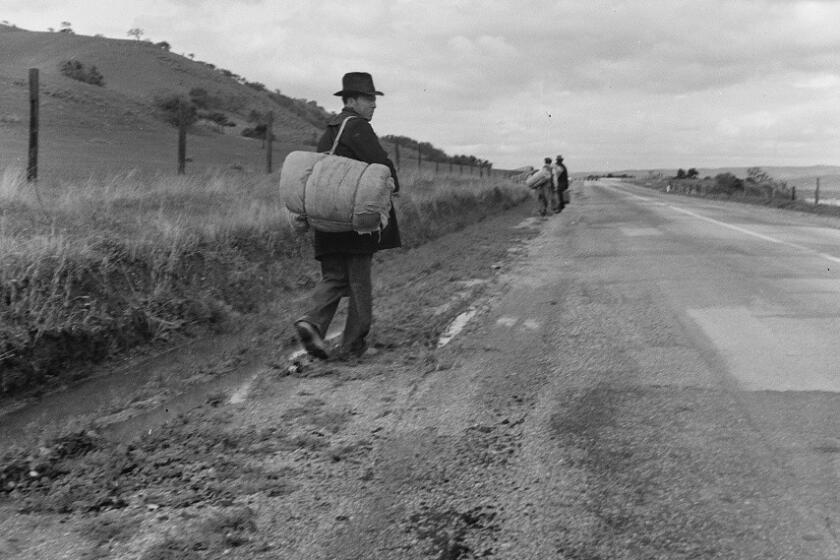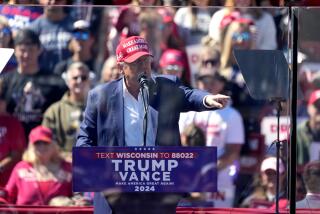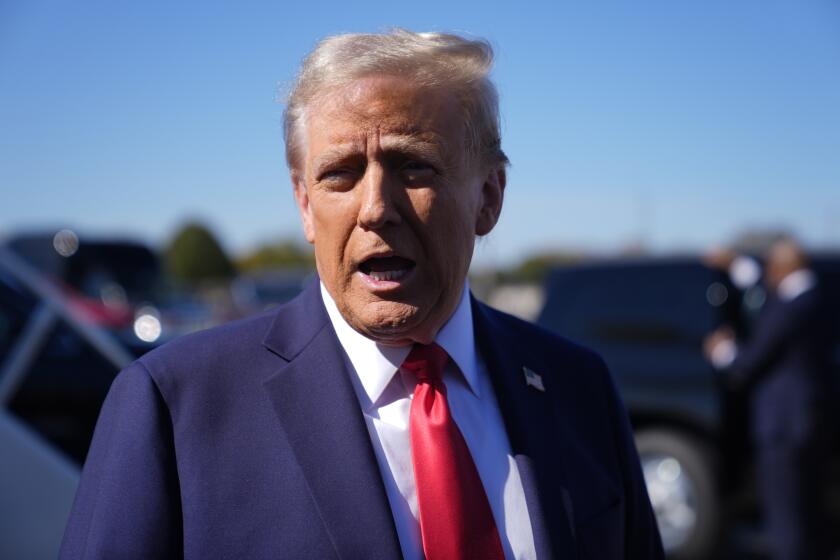Wisconsin voters defy pandemic to cast ballots: âIt would be a dishonor not toâ
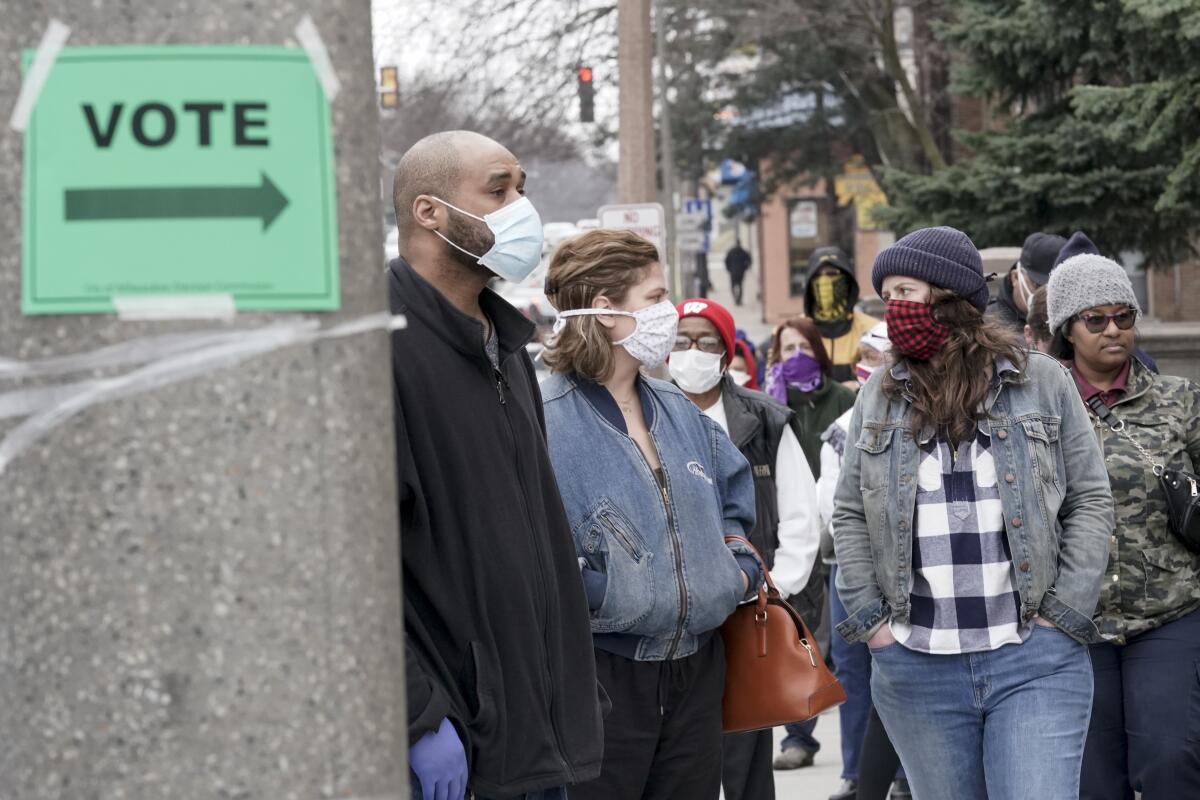
The country may be in lockdown, but Cheryl and Terrence Moore â black natives of the Deep South â felt there was no more important place to be Tuesday than their polling site, in surgical masks and latex gloves, voting in Wisconsinâs fiercely disputed primary.
âAfter the poll taxes and the poll tests, the lynchings and attack dogs, our ancestors dying and people putting their lives at risk at every opportunity, not to do our part because of a virus?â said Terrence Moore, 50, a pastor and business development coordinator at a Milwaukee neighborhood chamber of commerce.
âI would betray that legacy by staying home,â said the former South Carolinian, who waited 2½ hours with his wife to cast their ballots at the cityâs Riverside University High School. âIt would be a dishonor not to honor them in this capacity.â
Gloved, masked and determined, Wisconsin voters lined up a socially distanced six feet apart to defy a stay-at-home order and cast ballots in the Democratic presidential race and other contests. There will be no results announced until Monday at the earliest, just one oddity of an election unlike any other.
National Guard troops helped staff polling stations, and volunteers â including the Republican House speaker, in full protective gown â wiped down surfaces, handed out disposable writing implements and took other steps to avoid the spread of the novel coronavirus while giving citizens the chance to exercise their franchise in the balloting booth.
Many were not pleased.
âWelcome to the Sâ Show!â the stateâs lieutenant governor, Democrat Mandela Barnes, said on Twitter. âTodayâs episode has been produced by the Supreme Court and directed by the incomparable Speaker and Senate Majority leader duo. Buckle up, this oneâs sure to disappoint!â
The snide commentary reflected the raw politics surrounding Tuesdayâs vote.
Disruptive events like the COVID-19 outbreak can end political inertia and result in bold changes
After equivocating amid several days of legal wrangling, the stateâs Democratic governor, Tony Evers, sought Monday to postpone the primary until June. His effort was overturned by the GOP majority on the state Supreme Court; a separate ruling by the U.S. Supreme Court blocked extension of the deadline for voting by mail.
At bottom, the dispute amounted to a partisan power struggle: One of the stakes in Tuesdayâs election is a seat on the state Supreme Court, and a lower turnout was thought to benefit the conservative incumbent.
President Trump showed his partiality in a tweet: âWisconsin, get out and vote NOW for Justice Daniel Kelly. Protect your 2nd amendment!â
Nearly lost in all the skirmishing was the Democratic presidential contest between Joe Biden and Bernie Sanders.
Biden enjoys a nearly insurmountable lead in delegates, and polling ahead of Tuesdayâs primary suggested the former vice president would add substantially to his lead over the Vermont senator, his sole remaining rival for the nomination.
Sanders was among those calling for a delay. âLetâs be clear: Holding this election amid the coronavirus outbreak is dangerous, disregards the guidance of public health experts, and may very well prove deadly,â he said in an election eve statement. âFor that reason, our campaign will not be engaged in any traditional [get out the vote] efforts.â
Some effectively voted with their feet, choosing to stay home.
Naryan Leazer, a 55-year-old financial advisor who lives in the predominantly black north side of Milwaukee, said he, his two daughters and a son-in-law all voted absentee. But the ballot of his wife, Vera, never arrived in the mail. On Tuesday, Leazar said, she made the difficult decision not to participate in the primary.
âWe just donât think itâs worth the risk of her to stand in a long line to go vote,â Leazar said of his spouse, who is 52.
Although more than a dozen other states have postponed their contests, Wisconsin became the first to hold a primary in three weeks â a time when cases of the novel coronavirus have exploded and life has turned upside down. As such, it serves as a test case should the disruption extend into the fall campaign, when Wisconsin will be a major presidential battleground.
The Moores said they werenât the only ones who considered it their responsibility to turn out Tuesday, pandemic or no.
The diversity of those in line with them â black, white, Latino, Asian American, young, old, Democrat, independent, Republican â showed they were undeterred and united in purpose. âNo one talked about what side they were on,â said Terrence Moore.
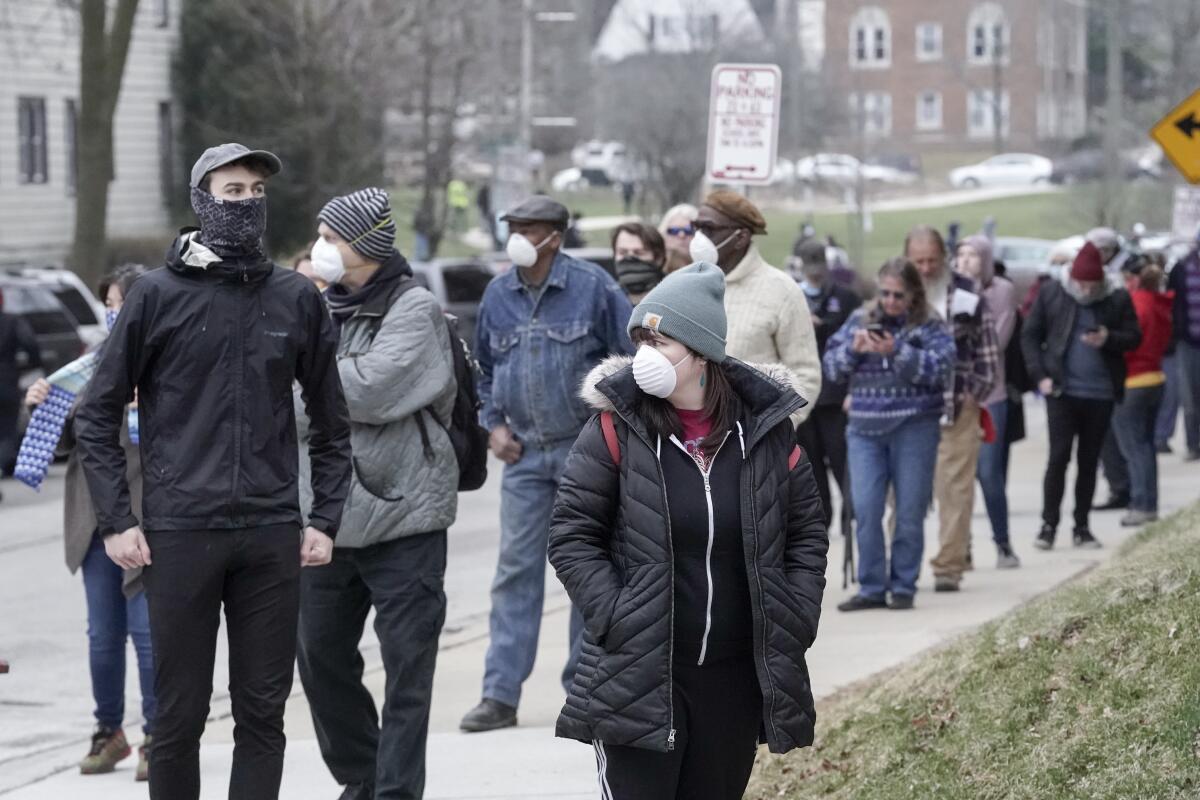
As of Tuesday, Wisconsin had reported more than 2,500 COVID-19 infections and at least 85 related deaths.
Wisconsin state Rep. David Bowen, a Milwaukee Democrat, recently recovered from the virus after spending two weeks sick at home. âIt is a shame that people have to choose between voting and participating in democracy, something that is their right to do, and their health and the health and well-being of those around them,â said Bowen, who stood in line for two hours to cast his ballot.
But state Republican Party Chairman Andrew Hitt downplayed health concerns. âWisconsin voters are pretty determined,â he said, noting that residents are still going to the supermarket, the liquor store and even boating stores classified as essential businesses. âI canât really think of something more essential than voting.â
Even so, disruption was widespread.
Milwaukee, the stateâs most populous city and a Democratic stronghold, had just five polling places, compared with the usual 180.
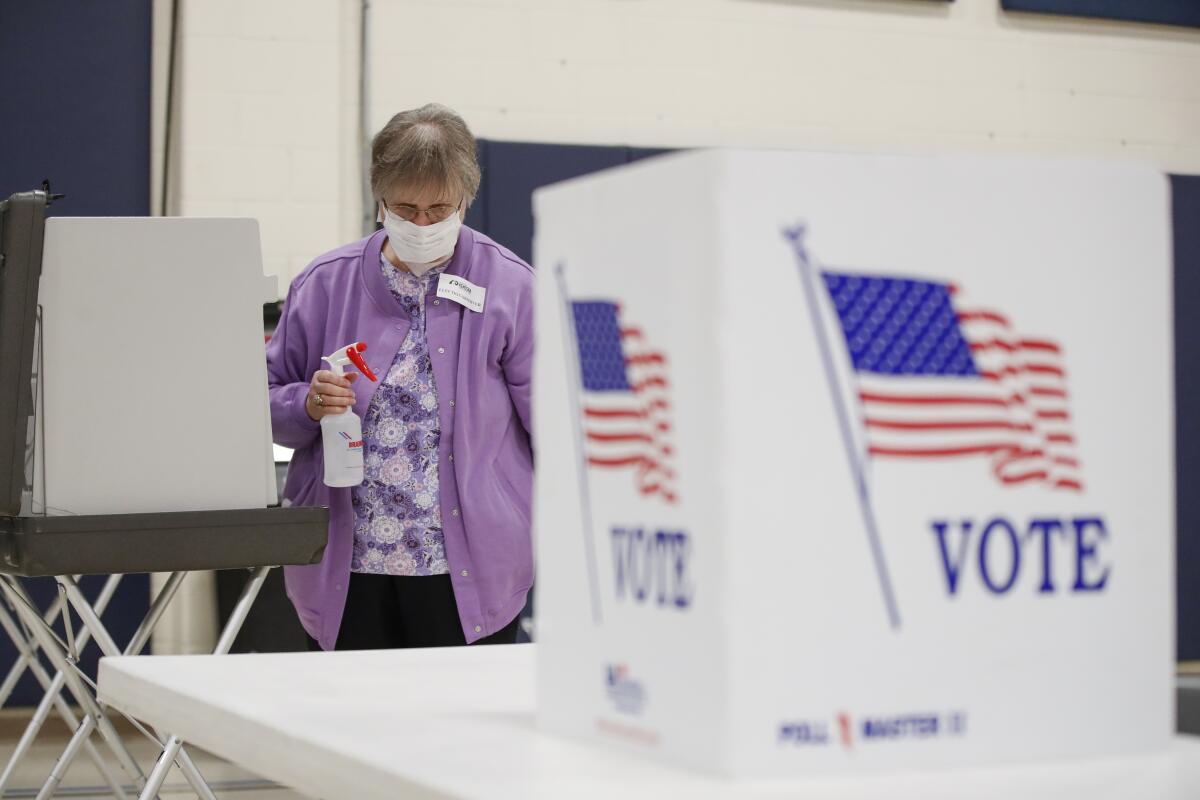
First federal report on coronavirus crisis says hospitals nationwide face equipment shortages, worry for their workers and have to compete for gear.
By election day, nearly 1.3 million absentee ballots had been sent to voters across the state, a record. More than 400,000 still had not been returned by election day, and the U.S. Supreme Court narrowed the window for them to count.
Rejecting Democratic pleas for an extension, the court said absentee ballots must be hand-delivered by Tuesday evening or postmarked by Tuesday, although they can arrive at election offices as late as April 13. Wisconsin officials said the Supreme Court decision left intact a provision of a lower-court order that no results could be reported before then.
Democrats said that failure to extend absentee balloting in effect disenfranchised a substantial number of voters.
Evers issued a buoyant Twitter message praising âthe bravery, resilience, and heroism of those who are defending our democracy by showing up to vote, working the polls and reporting on this election.â
Others were less sanguine.
âItâs been a common theme,â Leazer said of the dilemma posed by an election held amid the coronavirus epidemic. âEverything is just a mess. The main sentiment is, why are we having this election?â
Times staff writer Arit John and the Associated Press contributed to this report.
More to Read
Get the L.A. Times Politics newsletter
Deeply reported insights into legislation, politics and policy from Sacramento, Washington and beyond. In your inbox three times per week.
You may occasionally receive promotional content from the Los Angeles Times.
